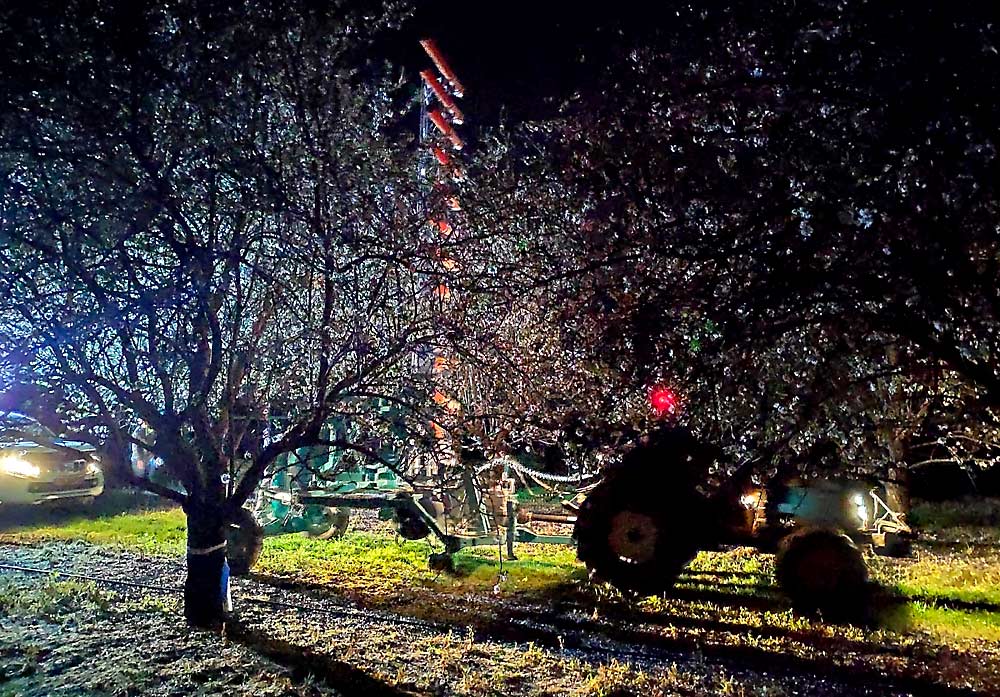
A prototype mechanical pollinator creeps through an almond orchard in February this year in Israel. The machine, under development by Edete Precision Agriculture Technologies, uses horizontal “cannons” fastened to a vertical stanchion to blast dry pollen onto waiting blossoms. The goal is to automate the process using lasers and GPS.(Courtesy Edete Precisions Agriculture Technologies)
With a recent flush of funding, an Israeli technology company is continuing its work to develop automated pollination systems that might help the tree fruit industry someday.
So far, Edete Precision Agriculture Technologies is running tests of its prototype in almond orchards this year in Israel and Australia and expects to do the same in the United States next year, most likely in Central California.
However, company officials expect their applications to easily transfer to apples, cherries and pears, which they believe are easier to pollinate, within three years of commercial work in almonds.
“We’re starting from the hardest,” said Eylam Ran, the CEO and founder of Edete, based in Basmat Tivon, 144 kilometers (89 miles) north of Jerusalem.
The company is composed of horticultural researchers, engineers and business management and marketing experts. Several have agricultural machinery experience.
The start-up recently received a financial shot in the arm with $3.325 million in investment funding, with the biggest amount coming from Kibbutz Malkia, a nearby orchard farming collective, plus another $1 million from the Israeli Innovation Authority.
The company is developing mechanical technology to harvest flowers from trees and extract pollen from blossoms, as well as intricate robotics to apply the dry pollen to blooming fruit trees.
Companies in the United States, Europe and pretty much everywhere do this already, mostly by hand. Edete is trying to automate the process and make it as efficient as possible.
“The engineering side of what we are doing is not simple,” Ran said.
So far, the application prototype stands about 18 feet to 21 feet tall and has up to 14 cannons on each side that fire pollen onto the blooms, penetrating 5 to 6 feet into the canopy.
The idea is for the machinery, with wheels and pivoting cannons, to follow the contour of the tree canopies, guided by GPS, weather data and LiDAR, a surveying method that works similarly to radar but uses pulsed laser light instead of sound.
For pollen collection, the company is creating a bank of trees and working on efficient ways to gather pollen from their flowers. Shaking is one way, but they are experimenting with other methods.
The company has competition. In the United States, Washington State University researchers are working with an electrostatic sprayer to apply a wet pollen suspension on blooming flowers. Edete prefers to use dry pollen to change nothing about the pollination process, except the delivery.
“Except for replacing the bees, we are adding nothing,” he said.
They have grower interest, he said. Many almond growers that the company interacts with invited Edete to try it on their orchards. That makes the work exciting and rewarding, Ran said. They’re trying to solve some of those growers’ challenges.
“This is what’s fun about it,” he said. •
—by Ross Courtney






Leave A Comment